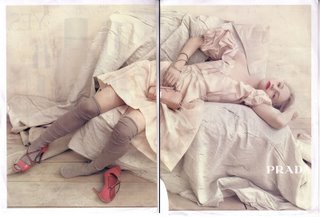 Casual Friday (also known as Dress-down Friday or simply Casual day) was an American and Canadian business custom which has spread to other parts of the world, wherein some offices celebrate a semi-reprieve from the constrictions of a formal dress code. Whereas, during the rest of the week, business shirts, suits, ties and dress shoes are the norm, on Casual Friday workers are allowed to wear more casual dress. Some companies allow jeans, T-shirts, and sneakers but others require smart casual dress. Some offices have a themed dress down day, or encourage people to wear very casual clothes. On this day, even managers are allowed to dress down. Caterpillar boots, stupid t-shirts and cheap jeans are the order of the day.
Casual Friday (also known as Dress-down Friday or simply Casual day) was an American and Canadian business custom which has spread to other parts of the world, wherein some offices celebrate a semi-reprieve from the constrictions of a formal dress code. Whereas, during the rest of the week, business shirts, suits, ties and dress shoes are the norm, on Casual Friday workers are allowed to wear more casual dress. Some companies allow jeans, T-shirts, and sneakers but others require smart casual dress. Some offices have a themed dress down day, or encourage people to wear very casual clothes. On this day, even managers are allowed to dress down. Caterpillar boots, stupid t-shirts and cheap jeans are the order of the day.Casual Friday began in the late 1950s originally as an attempt to raise worker morale in the new white-collar office environment. At that point only a few companies encouraged it, and it was not widely popular. In the late 1970s, when the production of cheap clothing outside the United States became more widespread, there was a massive campaign by large clothing producers to make Casual Friday a weekly event. It was the hope of these companies that they could undermine the formal clothing industries in Europe and create more of a market for their goods produced in cheap Third World factories.
Casual Friday along with dressing casually during the week became very prevalent during the Dot Com hey-day of the late 1990s/early 2000s. During the hey-day, some companies were so relaxed that shorts and sandals were permitted. After the bursting of the Dot-Com bubble, there was a backlash by many companies with the reinstatement of dress codes. The biggest backlash was by companies that permitted blue jeans before and instead, required at least more formal business casual or even "business formal". Target after Labor Day weekend, 2004, required "business formal" dress for all employees at their corporate office in Minneapolis, Minnesota. Many of the expensive clothiers who sold suits decided to do a marketing campaign to get companies and employees to return to the former custom of "business formal" clothing.





Sem comentários:
Enviar um comentário